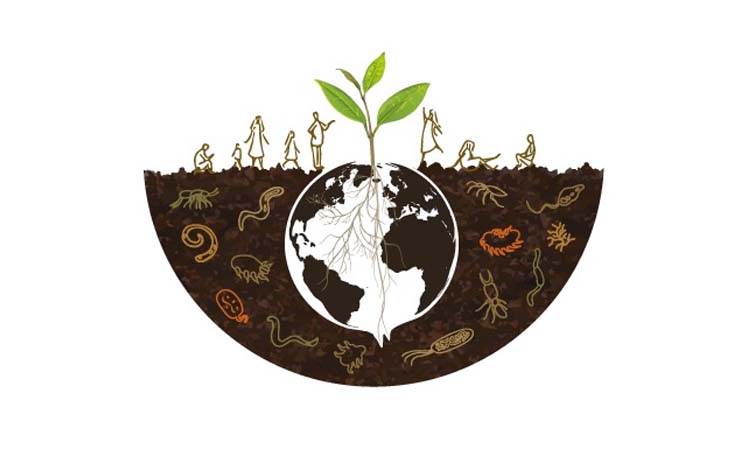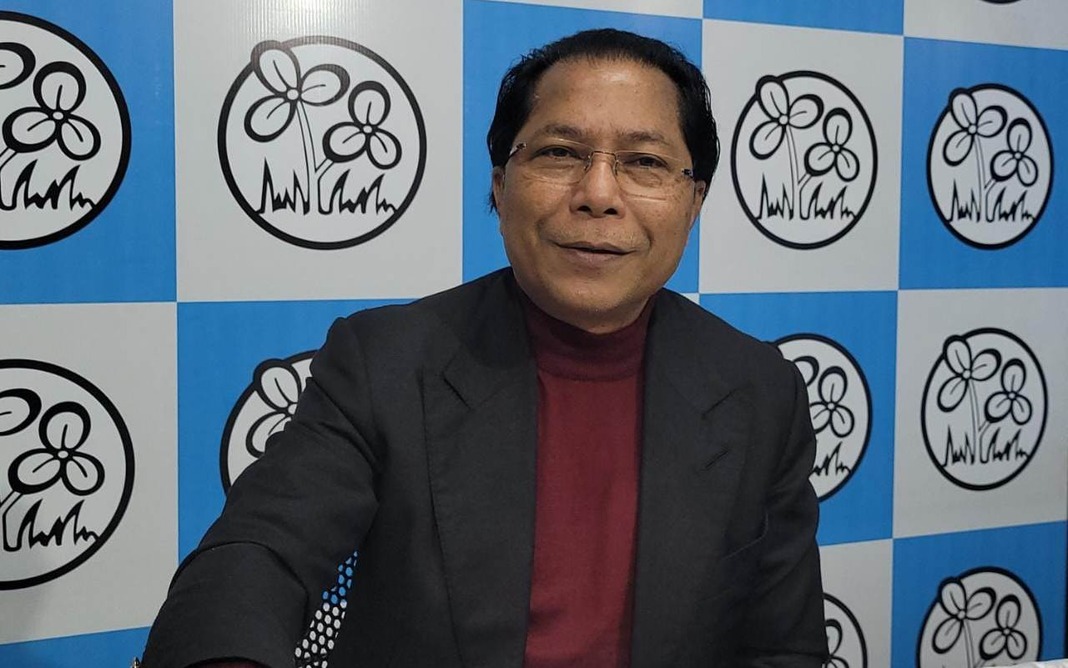By Dipak Kurmi
Soil, often taken for granted, is one of the most vital resources on Earth. It is the foundation upon which human civilization has flourished, providing the bedrock for agriculture, water filtration, biodiversity, and carbon storage. Yet, soil is a finite resource, and its degradation poses a critical threat to global food security, ecosystems, and climate stability. Recognizing the immense significance of soil, the international community observes World Soil Day on December 5 every year. This occasion serves as a platform to raise awareness about the importance of healthy soil and to promote sustainable soil management practices.
The theme for World Soil Day 2024, “Caring for Soils: Measure, Monitor, Manage,” underscores the need for accurate soil data and information to assess soil health and implement informed, sustainable practices. This theme reflects the growing urgency to address soil degradation and its cascading impacts on food systems, ecosystems, and climate resilience.
The Critical Role of Soil in Sustaining Life
Soil is the cornerstone of terrestrial ecosystems, providing over 95% of the food we consume. It supplies essential nutrients to plants, regulates water cycles, and supports an intricate web of biodiversity. Furthermore, soil acts as a natural carbon sink, playing a pivotal role in mitigating climate change. It is estimated that soils store more carbon than the atmosphere and vegetation combined, making them a vital ally in the fight against global warming.
However, soil degradation is accelerating due to unsustainable agricultural practices, deforestation, urbanization, and climate change. Erosion, nutrient depletion, salinization, and contamination are some of the processes that threaten the very fabric of this life-sustaining resource. The consequences are far-reaching: reduced agricultural productivity, diminished water quality, loss of biodiversity, and increased vulnerability to climate-related disasters.
The Importance of Measuring, Monitoring, and Managing Soils
The 2024 theme, “Caring for Soils: Measure, Monitor, Manage,” highlights the interconnectedness of these three critical actions in ensuring soil health. Accurate measurement, continuous monitoring, and proactive management are the cornerstones of sustainable soil stewardship.
Measuring Soil Health
Measuring soil health involves assessing its physical, chemical, and biological properties to understand its current state. Soil testing provides valuable data on nutrient levels, organic matter content, pH, and microbial activity. This information is essential for determining soil fertility and its capacity to support plant growth.
Advanced technologies such as remote sensing, soil spectroscopy, and Geographic Information Systems (GIS) have revolutionized soil measurement. These tools enable precise mapping of soil characteristics across large landscapes, offering insights that are critical for tailoring interventions to local needs. Accurate soil data helps farmers optimize fertilizer use, reduce chemical runoff, and enhance crop productivity while minimizing environmental impacts.
Monitoring Soil Changes Over Time
Monitoring soil health is crucial for detecting trends in degradation and evaluating the effectiveness of conservation practices. Continuous monitoring allows for the early identification of issues such as erosion, salinity buildup, or nutrient imbalances, enabling timely corrective measures.
Global soil monitoring systems, powered by satellite imagery and machine learning, provide invaluable real-time data on soil conditions. These systems help policymakers track the impacts of land-use changes, agricultural practices, and climate variability on soil resources. Such insights are instrumental in designing policies and programs that prioritize soil conservation.
Managing Soils Sustainably
Management is the culmination of measurement and monitoring. Sustainable soil management practices are essential for restoring degraded soils, enhancing their fertility, and ensuring their resilience to climate stressors. Practices such as crop rotation, reduced tillage, cover cropping, and the addition of organic matter improve soil structure, increase water infiltration, and enhance biodiversity.
Furthermore, integrated nutrient management systems that combine organic and inorganic inputs can optimize soil fertility while minimizing environmental harm. Such approaches align with the principles of regenerative agriculture, which seeks to restore soil health and sequester carbon while maintaining high agricultural productivity.
Soil Data and Decision-Making
Accurate soil data is a powerful tool for informed decision-making at all levels, from individual farmers to national governments. For farmers, soil testing provides guidance on nutrient management, irrigation schedules, and crop selection. At a broader scale, soil data supports the development of land-use policies, sustainable agriculture programs, and climate adaptation strategies.
For instance, data-driven precision agriculture techniques enable farmers to apply inputs like water and fertilizers only where needed, reducing waste and minimizing environmental impacts. On a national scale, soil maps inform infrastructure development, forest conservation, and disaster risk reduction efforts.
The theme “Caring for Soils: Measure, Monitor, Manage” thus emphasizes that soil health is not merely a scientific concern but a foundational element of sustainable development. Without accurate data and informed management, the global goals of food security, environmental conservation, and climate resilience remain unattainable.
World Soil Day: A Global Call to Action
World Soil Day 2024 is a reminder of the critical need to prioritize soil health in global development agendas. It is also an opportunity to celebrate the progress made in soil conservation and to galvanize action for the future.
This observance traces its roots to the International Union of Soil Sciences (IUSS), which proposed the idea of a dedicated soil day in 2002. With the support of the Kingdom of Thailand and the FAO’s Global Soil Partnership, World Soil Day was officially established by the UN General Assembly in 2013. Since then, it has grown into a global movement, inspiring governments, organizations, and individuals to take concrete steps to protect soils.
A Sustainable Future Depends on Healthy Soils
As we mark World Soil Day 2024, the message is clear: soil is not an inexhaustible resource, and its degradation is a silent crisis that demands immediate attention. By measuring, monitoring, and managing soils, we can reverse the damage caused by decades of neglect and ensure that this vital resource continues to sustain life on Earth.
The theme “Caring for Soils: Measure, Monitor, Manage” calls for a paradigm shift in how we perceive and interact with soil. It challenges us to harness the power of science, technology, and collective action to protect and restore this invaluable resource. By prioritizing soil health, we not only secure the foundation of global food systems but also contribute to a more resilient and sustainable planet.
Let us remember that the health of our soils is the health of our future. On this World Soil Day, let us commit to caring for soils and, in doing so, caring for life itself.
(the writer can be reached at dipakkurmiglpltd@gmail.com)




